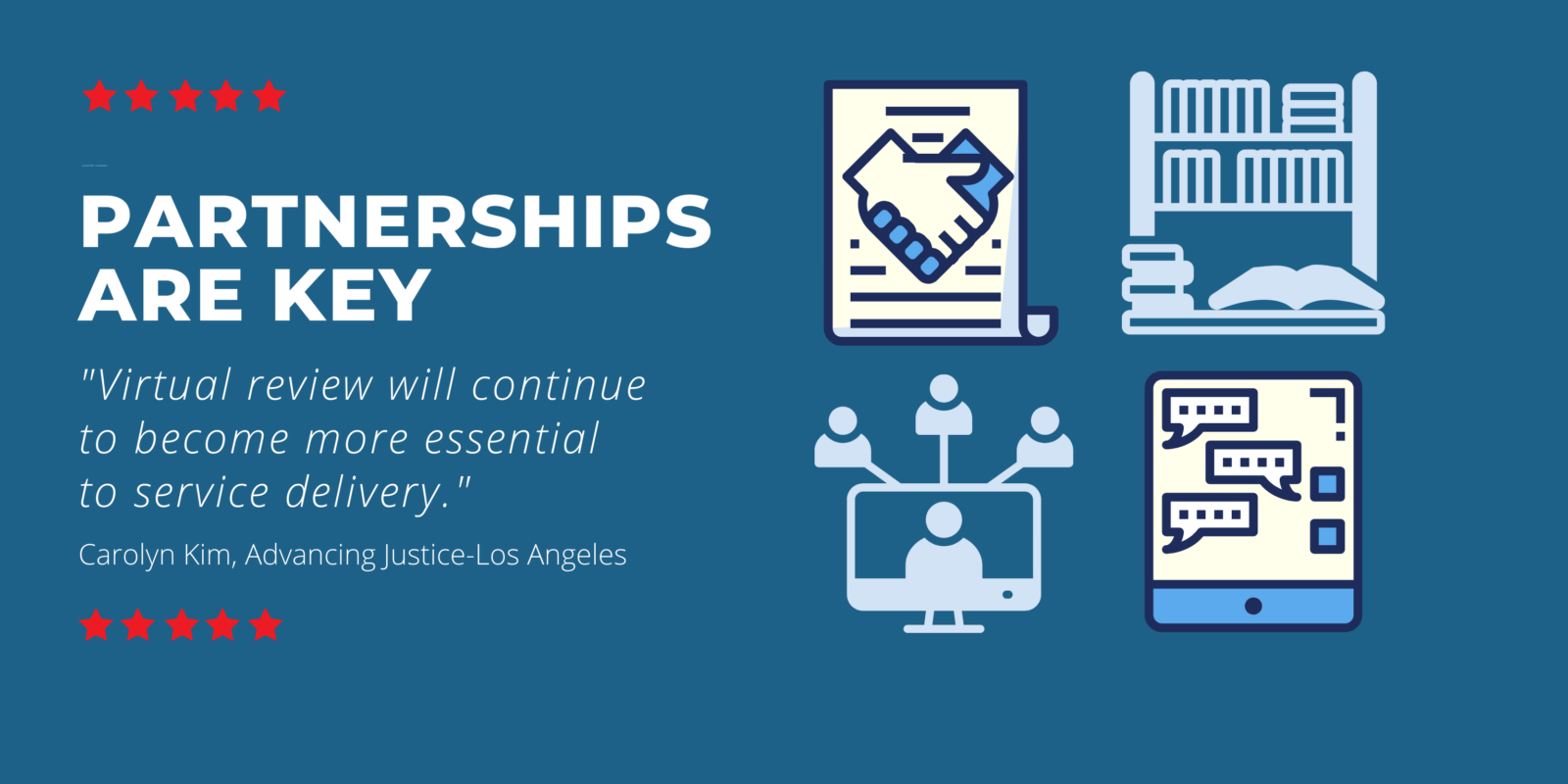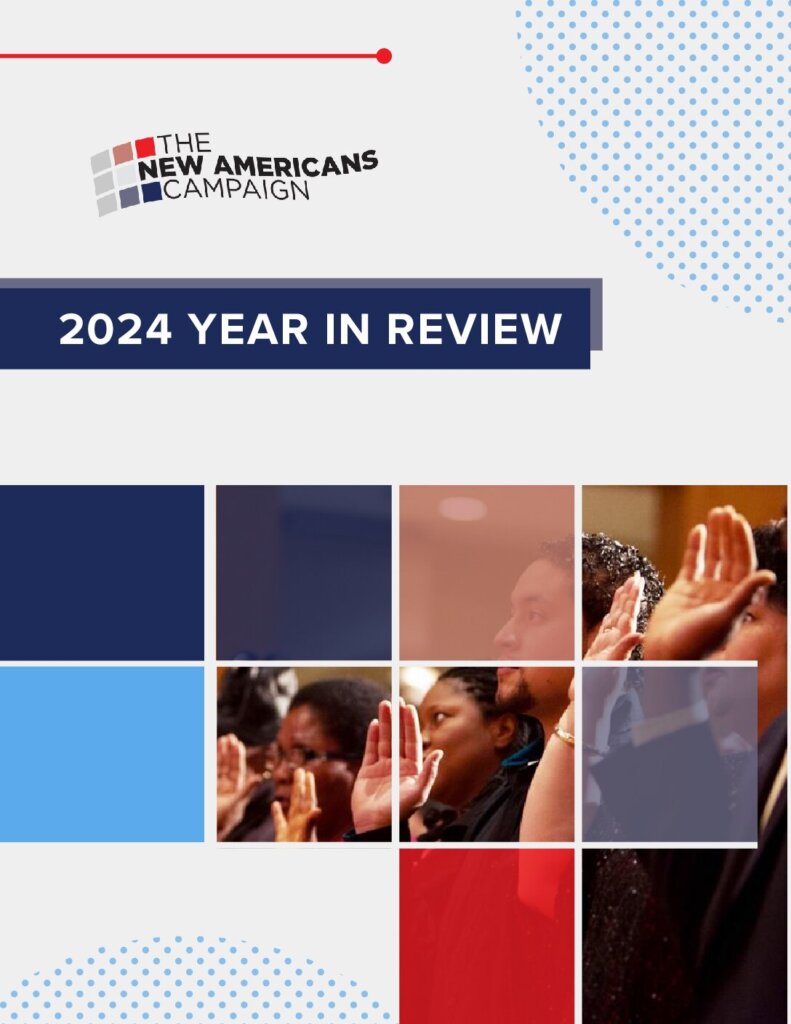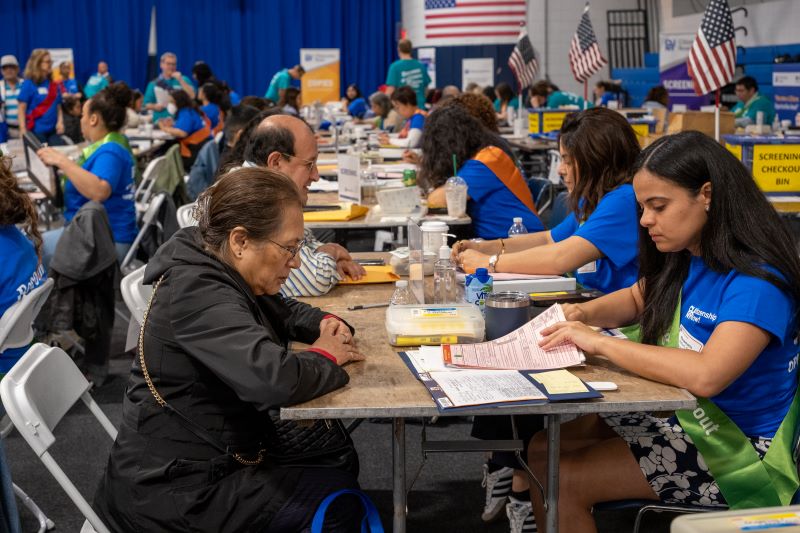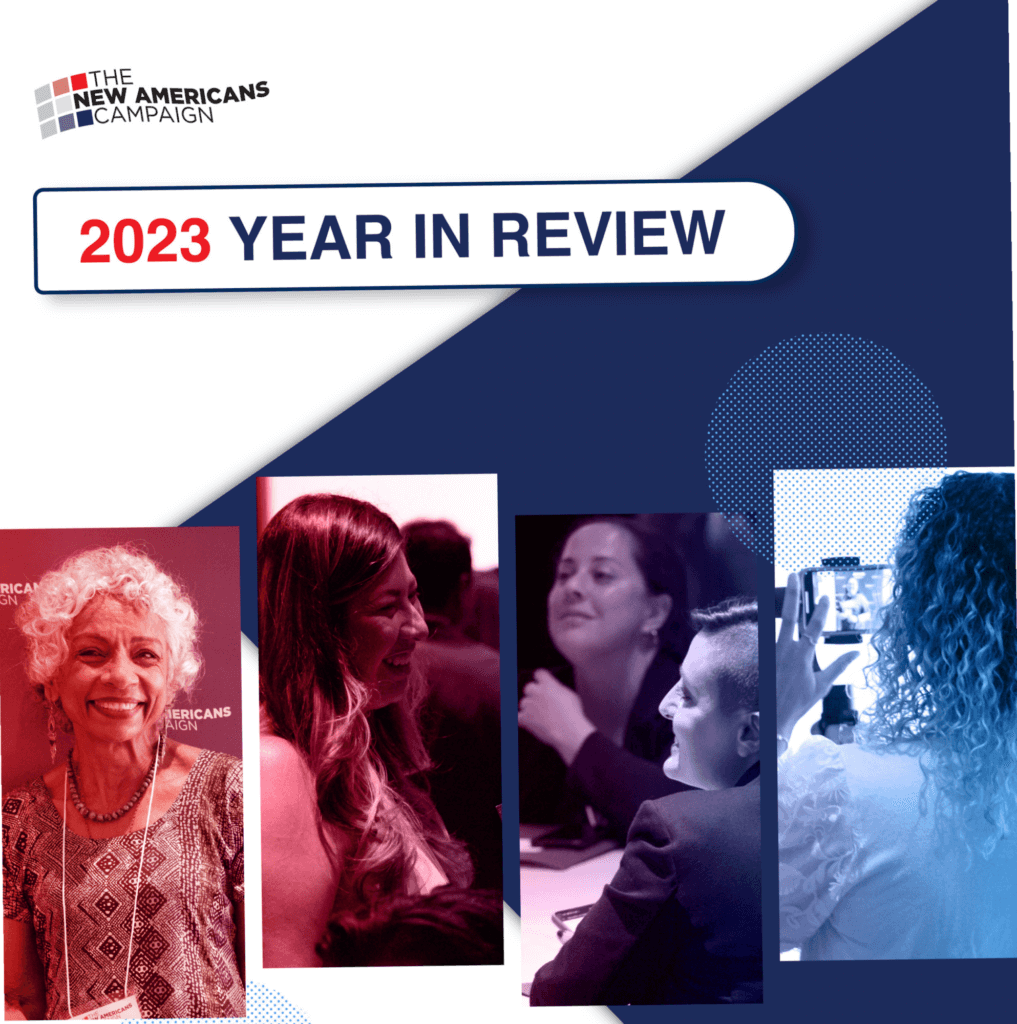Lessons from Our Virtual World Part One

Explore more
When the
coronavirus pandemic shut the doors of naturalization service providers last
March, some New Americans Campaign partners were already testing remote
services. But no one could have imagined the impact the quarantine would have
on aspiring U.S. citizens or the legal services providers who serve them.
The pandemic has created significant obstacles. People are worried about their jobs, their incomes, their health, and the health of their families. For some, the dream of U.S. citizenship has been put on hold. Others have been impeded by the USCIS itself. The agency halted in-office services mid-March, postponed interviews, cancelled oath ceremonies, and made no move to implement remote services. Boundless Immigration found that when the USCIS offices closed down on March 18, more than 100,000 already-approved citizens were caught in citizenship limbo. Thousands more are stuck in the pipeline behind them.
Quarantined
service providers are rallying, shifting remote projects into gear, dealing
with unforeseen challenges, and figuring out what they will need to continue to
help immigrants achieve their dream of citizenship. New Americans Campaign
partners usually rely on in-person services and volunteer-driven community
workshops. Now they must find ways to serve community members while also
protecting their staff, their volunteers, and their clients from infection.
In this
series of three posts, we check in with several participants in the New
Americans Campaign remote legal review pilot project to learn how they are
adapting to our new virtual world.
In Part
One of Lessons from our Virtual World, we begin in Los Angeles, California.
Asian Americans Advancing Justice-Los Angeles
Advancing Justice-LA has had a remote assistance pilot project underway since early 2019. They are now trying to increase access to services as efficiently as possible. Originally, NAC launched a campaign on Facebook to recruit clients for Advancing Justice-LA’s remote review. The goal was to reach eligible applicants who might prefer online assistance: tech savvy people who could begin the process on their own, and people in underserved areas—for example, a Thai speaker in rural Hawaii who didn’t have access to legal services or Thai-speaking providers.
Carolyn Kim, an attorney and project director at Advancing Justice-LA said their efforts before March taught them that people were interested in the offering, but not completely ready to embrace an entirely self-guided online model. But when the pandemic hit, Advancing Justice-LA was ready. It had developed a comprehensive guide to help NAC partners launch their own remote naturalization services. Remote review is now the most safety-conscious alternative for anyone needing assistance with an application and Advancing Justice-LA shifted its strategy accordingly. They now help their Los Angeles-based clients complete applications, as well as offer virtual review services and guidance to NAC partners and community-based organizations around the country.
The first
challenge was encouraging lawful permanent residents to begin the process
online if they were new referrals, or to continue the process online if they
had begun their application prior to quarantine. Many potential applicants may
be older and not particularly tech-savvy. “Plenty of folks are declining
assistance and saying, I want to wait until your office is open,” said Kim. Her
colleague Melissa Juan, the Project Coordinator of the Citizenship Virtual
Review Project and a Department of Justice accredited representative, agreed
that the initial response has been mixed. “Clients asked, ‘If I do go ahead
with my application, how will I send it?”’ said Juan, “They don’t want to leave
the safety of their homes” to go to a post office. On the other hand, Juan
said, many clients now have children quarantined at home with them who are able
to provide technical support. “Some became more interested in trying,” said
Juan, “there are pros and cons in this case.”
Kim says they steer people toward Citizenshipworks, a free and secure online platform that guides clients through the naturalization application completion process. “We encourage them to at least start on the portal which does an initial pre-screening… even if we need to intervene at an earlier stage, we have the platform to interact securely.” Citizenshipworks was developed by Pro Bono Net, the Immigrant Legal Resource Center (ILRC), and the Immigration Advocates Network (IAN), which administers the platform that allows providers to prescreen for eligibility, create an account, complete the N-400 application form, and connect with a legal partner for review.
During
this process, the reviewer meets the applicant online. There is a document
upload feature to send supporting documents. And together advisor and client
work on the same document. A chat function makes the virtual review possible
without needing to meet in person, use the postal service, or send email back
and forth. The applicant must have an email address or phone number and the
ability to navigate their smartphone or computer well enough to create an
account.
Kim says
they have gotten increased interest in virtual assistance from New Americans
Campaign partners who are all working remotely. They are getting referrals for
legal review from organizations with which they haven’t worked before.
Consequently, they are shifting their strategy to include more outreach to
partners including webinars with the Citizenshipworks team.
Lesson
learned:
Partnerships are key. Advancing Justice-LA is working with the local library, with community-based organizations in other states, and with NAC partners. “I feel like there is a desire to move things forward and an ability to prioritize,” said Kim. “I don’t expect an ‘off switch’ when the coronavirus ends. The virtual review work will continue to become more essential to service delivery.”
Next: We go to Atlanta, Georgia, where we check in with Hayat Ahmed, the Community Integration Manager for IRC: “You have to build a relationship so that they can honestly tell you something crucial to their application.”



